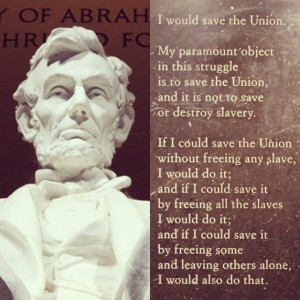The story of Jesus Christ’s life, death, and resurrection has often been thought of as being “The Greatest Story Ever Told”. In fact, it is the title of a movie about Jesus, that was based on a novel of the same title, that was based on a radio play of, you guessed it, the same title. It is, of course, a compelling story. But it is not the greatest story ever told. Well, at least, it’s not the greatest story ever told in its entirety. It’s a rather exciting and interesting portion of an even greater overall story, and that story… that is the greatest story ever told.
I think perhaps the most common struggle that Christians have, and perhaps theists in general, presuming they believe in a god that has great power and is also good, is trying to figure out why there is so much suffering in the world. Some is easily explained as humankind’s inhumanity to their fellow people, but that doesn’t hold up so well under acts of God and nature. Tornadoes, floods, earthquakes, and the like cannot be blamed on the acts of a wicked person. Nor can terminal diseases such as cancer. Why do these things happen?
At some point in the last few years, I began to look at the unfolding of human history, especially as it relates to Judeo-Christian beliefs, and God himself, as a story. I believe it is a story that God is compelled to tell, and must be told both for His benefit and for our benefit. Each and every human that has ever lived or that ever will live plays a role in that story. At first thought this seems like a great honor. You and I are in unique places in this story, and we are helping to tell what is surely the greatest story that will ever be told.
However, when you think it through a bit more, it becomes considerably less pleasant. Think about every story that you have ever read or seen on screen. Or at least, every good one. Think about what happens to the characters in those stories. Especially the more important characters. A great story puts the characters through hell. A story that rings true to our lives tends to be one that puts its characters through the greatest hell. Consider extremely popular stories, such as Game of Thrones, or Breaking Bad. In both cases, these characters literally go through hell, and that pain and suffering resonates within our very beings as truth.
While this understanding doesn’t make pain and suffering OK for me, or easier to deal with, or help someone else who is suffering deal with, I find it somewhat comforting and satisfying. I feel like it gives suffering a purpose. And it communicates to me that God isn’t a sadist. Writers don’t generally enjoy hurting or killing off their characters, often not even the particularly evil ones. They grow to love their characters for who they are. But they still do it anyway, because it’s what needs to happen for the sake of the story. And the story, if it’s a good one, will show something true and beautiful to the world.
I find comfort in this because even if I feel in a certain moment like my life isn’t going anywhere, which I think we all feel sometimes, I can have faith that I’m right where I should be, and that the next part of my story just needs to be set up. While being in control can be comforting because we think we always know what is best, not being in control can be liberating, especially if the one in control is a writer who will place you exactly where you need to be in the story.
There are certain things in my life that, had I possessed perfect foreknowledge, and thus been given the choice beforehand, I probably would have avoided altogether. That probably even includes if I knew what was to follow, even though much of what has followed has been good. For myself, I hate that sort of emotional turmoil and pain. And it lasts, and it scars, and there are things that effect me to this day… Now that I’ve been through the worst of it, despite those scars, I can be glad for it. But if I were given the choice of suffering or not the next time the story calls for it, I’m sure I’d opt out. But the truth it, that’s not what’s best for me.
To close this out I want to share a Rocky Votolato song called “The Rain Will Come”, and I will post a couple lines that have a great tension, that I feel like sort of embody the idea that I was hoping to capture in this post.
“Maybe I should be running /
If I controlled anything I’d be scared of the place that I’d be.”

